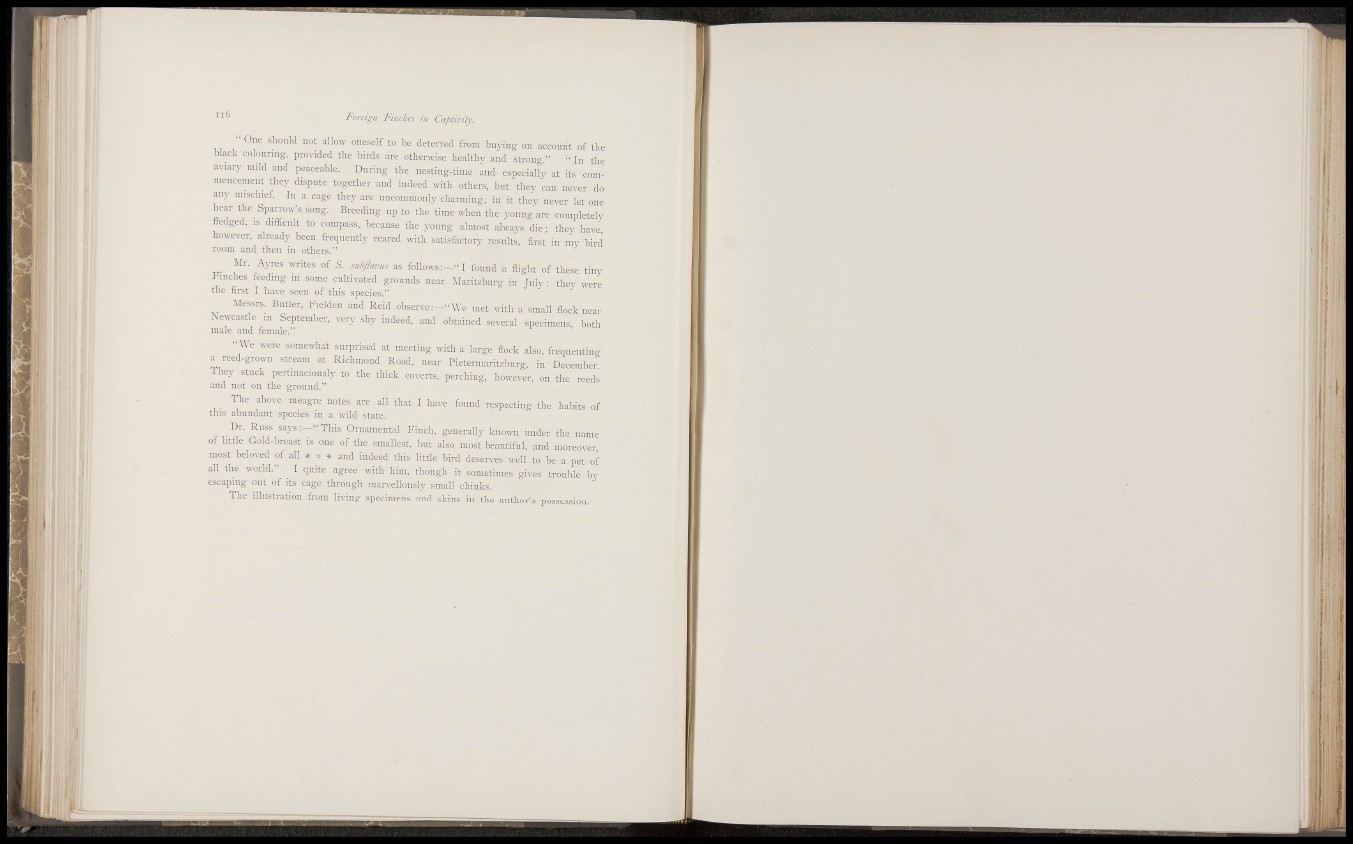
J J '! !
r [
Bf
j;
^if I / I
I i 6 Foi-eign Finchcs in Captivitw
Oue should not allo^v oneself to be deterred froin buying- on account of the
black colounngs pro\-ided the birds are other^v^se healthy and strong " In the
aviary nuld and peaceable. During the nesting-time and especially at its coniniencenieut
they dispute together and indeed with others, but the^. "can neyer do
any nuschief. In a cage they are uncommonly charming; in it they never let one
hear the Span-ow's song. Breeding up to the time when the young are completely
fledged, IS difficult to eompass, because the young almost alwaj-s die- they have'
however, already been freqnenth- reared ^vitli satisfactory results, iirst in my bircl
room and then in others."
Mr. A3-res writes of 5. u,hflavns as follows:-" I fonnd a flight of these tiny
Finches feeding in some cultivated grounds near Maritzburg in July : they were
the first I have seen of this species."
Messrs. Butler, Fieldeu and Reid observe:--We met with a small flock near
Newcastle in September, yerj- shy indeed, and obtained several specimens both
male and female."
" We were somewhat surprised at meeting .,-ith a large flock also, freqnentinoa
reed-g-rown stream at Richmond Road, near Pietermaritzburg, in Decembe"
The.- stuck pertinacioush. to the thick co.-erts, perching, ho^vever, on the reeds
and not on the ground."
^ The above meagre notes are all that I have fonnd respecting the habits of
this abundant species in a -\\-ild state.
Dr. Russ says: - " This Ornamental Finch, generally known under the name
of little Gold-breast is one of the smallest, but also most beautiful, and moreover
most belo.-ed of all , * and indeed this little bird deserves well to be a pet of
all the world." I quite agree with him, though it sometimes gives trouble b.-
escaping out of its cage through marvellously small chinks.
The illustration from li.-ing specimens and skins in the author's possession.
4 i b
! i • 11
:: ? ' !'
i '!
•: 'i i
i
I •?